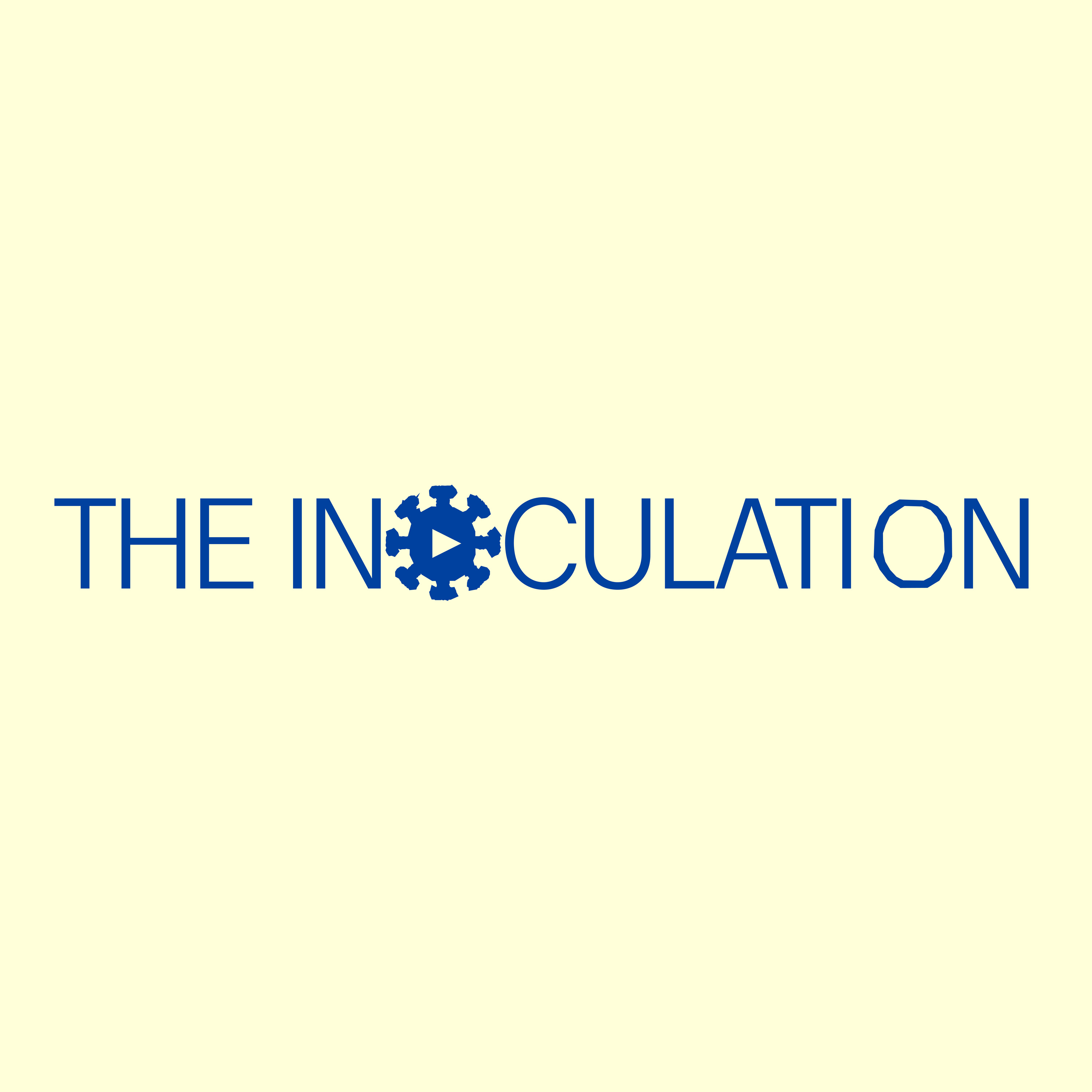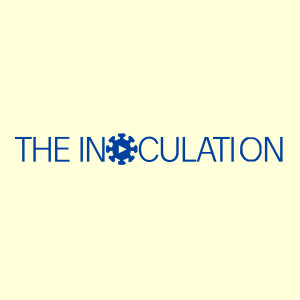

6.4K
Downloads
47
Episodes
A podcast that explores the intersection of anti-vaccine beliefs, technology, and politics. We report on how misinformation, disinformation and fake news are constructed and how they spread. We talk to researchers to find out how serious the threat of disinformation is, and how politics and politicians use antivaxx-views to score points with voters. We look for examples of people who successfully navigate misinformation. The show is hosted by Eva von Schaper and Daiva Repeckaite, journalists with two decades of reporting experience between them. You can sign up for our weekly newsletter, Inoculated, at www.theinoculation.com. Transcripts are available at www.theinoculation.com.
A podcast that explores the intersection of anti-vaccine beliefs, technology, and politics. We report on how misinformation, disinformation and fake news are constructed and how they spread. We talk to researchers to find out how serious the threat of disinformation is, and how politics and politicians use antivaxx-views to score points with voters. We look for examples of people who successfully navigate misinformation. The show is hosted by Eva von Schaper and Daiva Repeckaite, journalists with two decades of reporting experience between them. You can sign up for our weekly newsletter, Inoculated, at www.theinoculation.com. Transcripts are available at www.theinoculation.com.
Episodes

Friday May 14, 2021
Friday May 14, 2021
In this episode, we took a look at how the Russian government and its media networks used their power and reach to discredit Covid vaccines made by Western companies and how it boosted its own Sputnik V Covid jab -- and how this might backfire. Experts say that attributing anonymous or obfuscated social media profiles is tricky, but they tend to be remarkably consistent and align with the goal of promoting Sputnik V at the expense of Western, but not Chinese vaccines.
We talked to Seb Cubbon, a research analyst at First Draft (one of their reports here), Miriam Matthews, senior behavioral and social scientist at RAND, Olga Dobrovidova, a Russian science journalist, Bret Schafer from the German Marshall Fund of the United States (GMF), Peter Stano, lead spokesperson at the European External Action Service, which is the EU’s diplomatic service, and Peter Balasz, a former diplomat and professor emeritus, Central European University.
You can read more about vaccine disinformation in the New York Times, CNN and other sources. A link to the transcript is here.
Our reporting is supported by Journalismfund.eu, Media Lab Bayern and Alfred Toepfer Stiftung. Please subscribe to this show on Apple Podcasts, Audible, Google Podcasts, Spotify or another platform of your choice. Follow us on Facebook as @theinoculation, on Twitter as @TInoculation, and on Instagram as @the_inoculation

Friday Apr 30, 2021
Disinformation, Misinformation, Propaganda: What’s the Difference?
Friday Apr 30, 2021
Friday Apr 30, 2021
Disinformation, misinformation, propaganda: While reading the transcript of a an interview with a disinformation researcher, Eva and Daiva noticed that the distinction between misinformation and disinformation was often unclear to them. So in this episode of The Inoculation they look for clear definitions and helpful examples of disinformation, misinformation and propaganda.
Try your hand at EU vs Disinfo's quiz and see if you can distinguish them. You can find a helpful academic guide on these issues here. A summary of First Draft's research, mentioned in the episode, is available here.
Our reporting is supported by Journalismfund.eu, Media Lab Bayern and Alfred Toepfer Stiftung. Please subscribe to this show on Apple Podcasts, Audible, Google Podcasts, Spotify or another platform of your choice. Follow us on Facebook as @theinoculation, on Twitter as @TInoculation, and on Instagram as @the_inoculation

Friday Apr 02, 2021
Who is spreading vaccination misinformation and why?
Friday Apr 02, 2021
Friday Apr 02, 2021
Aggressive political networks, associations of concerned parents and even state-affiliated media - many actors have been found to share misinformation about the COVID-19 vaccines currently used in the EU. "Oxford seems to have created a vaccine for monkeys," a host on Rossiya 1 channel said in September. Why are they doing this? And how can we measure the influence these messages have on internet users?
To find out, Daiva and Eva talk to Dr Aliaksandr Herasimenka, a postdoctoral researcher at the Computational Propaganda Project at the Oxford Internet Institute. "The COVID-19 pandemic has already caused a huge political and social disruption across the world. We will see emergence of new types of political groups, political organisations that will be more disruptive than what we previously called populists. They will be potentially more damaging to democracy," he says.
Herasimenka is a co-author of a paper on misinformation distribution on Telegram. You can read all his papers here. In this episode Eva mentions comparisons of pandemic-related restrictions to the Holocaust - you can read more about the phenomenon here, here and here.
Our research is supported by Journalismfund.eu. Please subscribe to this show on Apple Podcasts, Audible, Google Podcasts, Spotify or another platform of your choice. Follow us on Facebook as @theinoculation, on Twitter as @TInoculation, and on Instagram as @the_inoculation

Friday Mar 19, 2021
Vaccine communication -- how to avoid common mistakes
Friday Mar 19, 2021
Friday Mar 19, 2021
After a series of delivery hiccups and reports of some frontliners not showing up for their jabs, Europe - and other regions - tensely awaited the European Medicines Agency's assessment on the safety of the AstraZeneca vaccine. Its rollout was shrouded in rumours from the start. How can journalists navigate the landscape of statistics and personal testimonies? How can we best answer readers' questions? And how can everyone be better prepared for conversations about vaccines in their community?
To find out The Inoculation talked to freelance journalist Laura Oliver. Laura is the author of A Freelancer's Guide for Reporting on Vaccines, published by the European Journalism Centre. She previously worked as a community coordinator at The Guardian, where one of her duties was sourcing eyewitness accounts from the ‘Arab Spring’. Later she worked on the GuardianWitness platform, before starting off as a freelancer and co-founding the Society of Freelance Journalists. You can read more about the reporting guide here and more about Laura here.
Our research is supported by Journalismfund.eu. Please subscribe to this show on Apple Podcasts, Audible, Google Podcasts, Spotify or another platform of your choice. Follow us on Facebook as @theinoculation, on Twitter as @TInoculation, and on Instagram as @the_inoculation

Friday Mar 05, 2021
Misinformation in Slovakia
Friday Mar 05, 2021
Friday Mar 05, 2021
The Inoculation's team has lately been looking into misinformation. Together with colleagues in Latvia and Estonia, we investigated misinformation in the Baltic States for a story published in Re:Baltica. In this episode of our podcast, we look at how authorities are combating health-related misinformation in Slovakia.
Jakub Goda, an experienced social media professional, joined his country's public sector to identify and counter health-related misinformation. "Governments and government institutions should use creative, digitally skilled people to communicate in the social media environment, and digital environment in general, and not to rely on old-school bureaucratic way of responding to journalists' questions," he says. "It's a kind of deeper mental transformation that needs to happen."
You can read how he infiltrated a misinformation-spreading website here. You can also read about the People's Party - Our Slovakia, mentioned in this episode, on Deutsche Welle. More information on the party's links to health misinformation is available on The Slovak Spectator.
Our research is supported by Journalismfund.eu. Follow us on Facebook as @theinoculation, on Twitter as @TInoculation, and on Instagram as @the_inoculation

Friday Feb 19, 2021
Estimating the size of anti-vaccination movements
Friday Feb 19, 2021
Friday Feb 19, 2021
Are 'vaccine hesitancy', 'vaccine skepticism' and 'anti-vaccination sentiment' synonyms? Do people who say they doubt vaccine safety always refuse vaccines? In this episode Eva and Daiva discuss the challenges researchers face when trying to estimate the size of the anti-vaccination movement and the number of its sympathizers.
Our interviewees are: Prof. Maya Goldenberg, Dr Jonathan Kennedy, Prof. Jason Reifler, Dr Samantha Vanderslott. We also thank Col. Gintaras Koryzna for providing valuable data. You can read the Slate article we reference here. In addition, we refer to the Wellcome Global Monitor 2018.
Do read our story in Nara: https://bit.ly/3auBWke. Lithuanian readers can find our story on vaccination in electoral debates in the February issue of the IQ magazine. Our research is supported by Journalismfund.eu
Follow us on Facebook as @theinoculation, on Twitter as @TInoculation, and on Instagram as @the_inoculation

Friday Jan 22, 2021
Welcome to The Inoculation
Friday Jan 22, 2021
Friday Jan 22, 2021
Hello and welcome to The Inoculation, a podcast where we tell international stories on health, misinformation, vaccines, COVID-19, public policies, and more. We, Daiva Repečkaitė and Eva von Schaper, are two journalists looking into the politics and values surrounding public health, starting from vaccination.
We also publish our stories in news outlets in multiple languages, which you can see here. Our research on vaccine skepticism is supported by Journalismfund.eu
Please subscribe to this podcast wherever you like to listen. You can follow The Inoculation on Twitter at @TInoculation. You can also follow us individually: Eva at @EvavonSchaper and Daiva at @daiva_hadiva